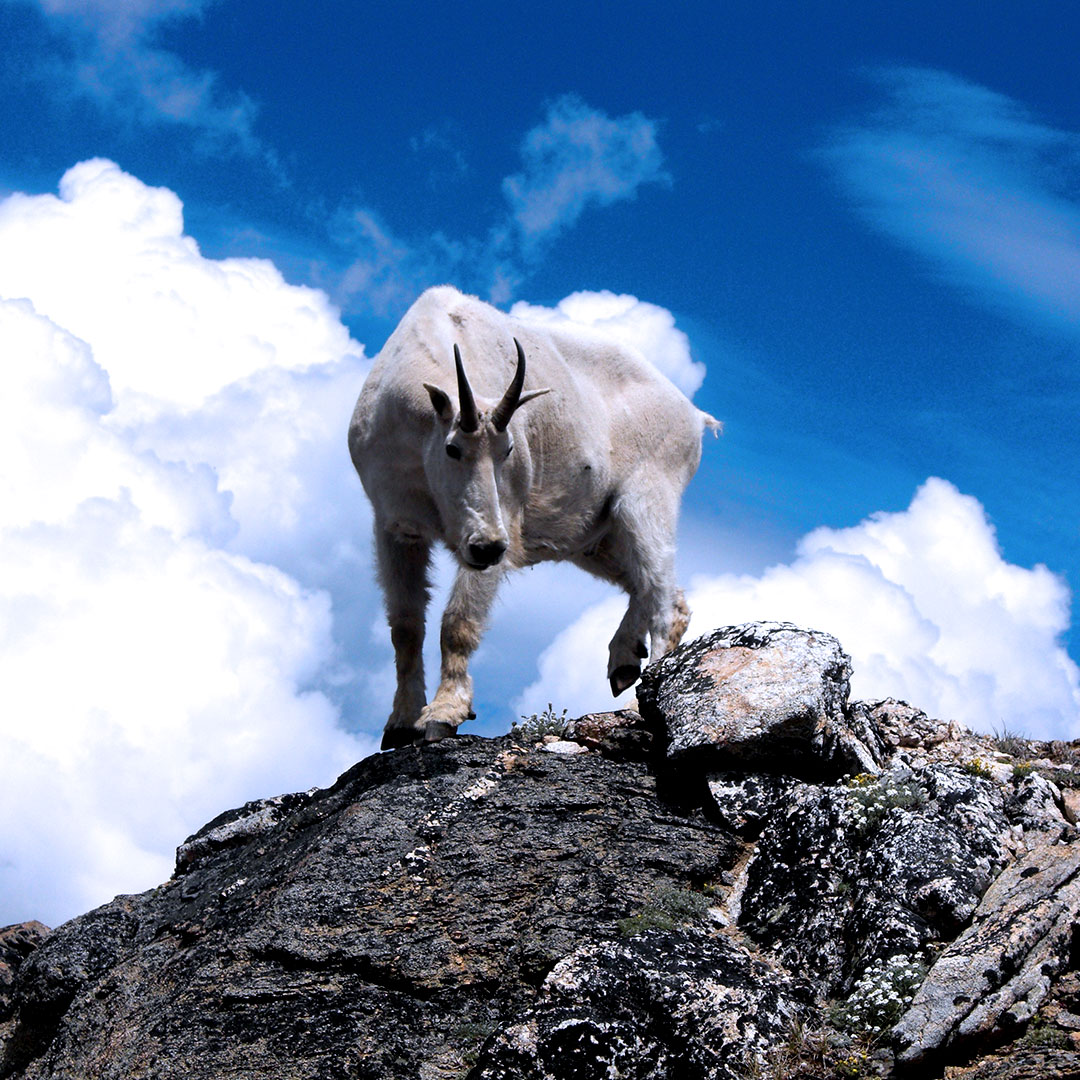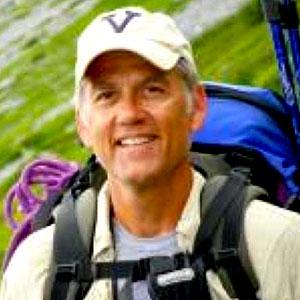Mountain Goat Conservation and Restoration in Washington State

WHEN
Thursday, September 22, 2022
4:30-5:30 p.m. PT
LOCATION
Online/Zoom for off-campus community
In-person for WWU students, staff, faculty
PRICE
Free
Check out this video to watch the Mountain Goat Conservation and Restoration in Washington State.
Environmental Speaker Series Presents Dr. David Wallin
Brought to you by:
WWU College of the Environment
in partnership with the WWU Alumni Association
Mountain goats inhabit remote, mountainous terrain from Alaska to the western territories of Canada and south to Washington, Idaho and Montana. Mountain goats play an important role in shaping alpine plant communities and they serve as prey for large predators such as cougars and grizzly bears. The mountain goat is of great cultural significance for several Native American tribes in our region and it is an icon of the rugged Cascade high country for outdoor and wildlife enthusiasts.
Mountain goat populations in Washington state have declined by 70% or more since the 1950s, probably as a result of overhunting. I will discuss work that I have done over the past 20 years in partnership with tribes, state and federal agencies and numerous WWU student in an effort to restore mountain goat populations in the Washington Cascades.
The in-person audience for the Environmental Speaker Series will be limited to currently enrolled WWU students and WWU faculty/staff. The off-campus community is welcome to join us online and to participate in the Q&A via the chat. Thank you for your cooperation and understanding.

Dr. David Wallin
Speaker
Dave Wallin has been a faculty member at WWU since 1995. Prior to coming to WWU, he worked at Oregon State University for 5 years on issues related to land use impacts on PNW forests. He received his PhD from the University of Virginia. Much of his early work involved the use of satellite imagery to address issues in Africa, the Russian far east, China and here in the PNW. He now uses drones, rather than satellites, as a remote sensing platform. Much of Dave's recent work with his graduate students has focused on wildlife conservation and on the structure and function of riparian forests.
Questions and Accommodations
Contact the WWU Alumni Association for this event. Feel free to call at (360) 650-3353 or email at alumni@wwu.edu if you have any questions or comments.
There will be auto-captions available for this event.